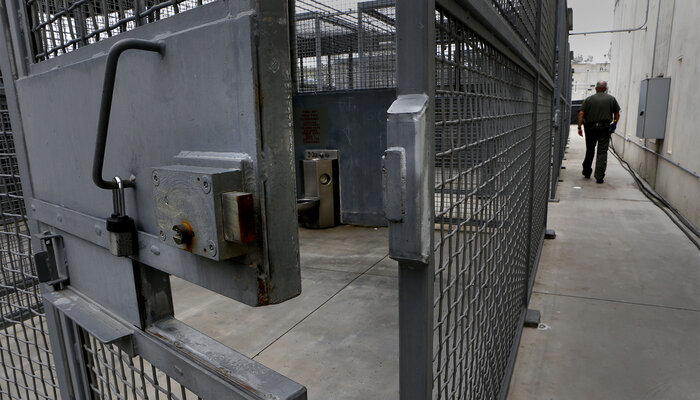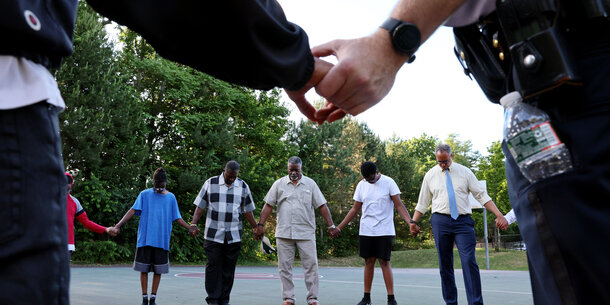This was originally published as the foreword to the Brennan Center report “Poverty and Mass Incarceration in New York: An Agenda for Change.”
The past year has been a reckoning. As a nation, we were finally forced to confront the reality and interconnectedness of racism, inequality, and injustice, which have permeated our institutions and systems for centuries. When the protests that began in Minneapolis made their way to New York, we marched not just for George Floyd, Breonna Taylor, Eric Garner, or Freddie Gray but for all the lives that have been stolen and devalued by the very systems that are meant to uphold and preserve justice.
Recovery — of our health, our economy, and the moral fabric of our society — will take a nationwide effort in which we all must participate, and that means addressing the broken systems and inequities in our own communities. In New York, we have a long road ahead of us.
Despite efforts to shrink it, New York’s prison infrastructure is one of the largest in the country. Today, more than 40,000 New Yorkers are behind bars and another 337,000 have spent time in prison at some point in their lives; three-quarters of them are people of color. As the recent Brennan Center report Conviction, Imprisonment, and Lost Earnings: How Involvement with the Criminal Justice System Deepens Inequality shows, this creates enormous, lasting consequences for impacted individuals, families, and communities. Time spent in prison can reduce a person’s lifetime earning potential by half a million dollars. In New York State alone, imprisonment translates to nearly $2 billion annually in reduced earnings, overwhelmingly extracted from communities of color, the very communities Robin Hood serves.
Between policing, jails, prisons, probation, and parole, New York State, its counties, and its localities spent $18.2 billion on the carceral system in 2019, according to a new report by the Center for Community Alternatives. By contrast, New York spent just $6.2 billion that year on mental health services, public health, youth programs and services, recreation, and elder services.
This is no accident or aberration. Budgets are not impartial or apolitical documents; they are reflections of who and what we value as a society. Ours show us that for generations, New York’s criminal justice system has intentionally and systematically blocked low-income communities of color from realizing economic opportunity and exercising their human potential, and instead made poverty and imprisonment endemic to them.
But policies and budgets can change. Last year, New York passed important reforms related to discovery, bail, and trial conduct, and our overall prison population continues to drop year over year. Following the lead of states including Louisiana, Missouri, and South Carolina, New York legislators and advocates have advanced a new set of priorities. The Less Is More Act, for example, would prevent thousands of New Yorkers from being reincarcerated for technical parole violations like being late for curfew, failing a drug test, or missing appointments with a parole officer.
The report that follows explores many potential reforms that would decrease the flow of people into the system, reduce overly punitive penalties, and provide greater support to those who are formerly incarcerated. We must not let our momentum or determination waver. While we cannot erase the harms done to generations disenfranchised by our criminal justice system, we can change how our society values the lives of those who have passed through it. We can create budgets that prioritize our schools over our prisons, and we can invest in our communities instead of surveilling them.
That would be the kind of lasting, meaningful change that millions took to the streets to secure in the name of justice for lives taken far too soon.
Wes Moore is the chief executive officer of Robin Hood.


